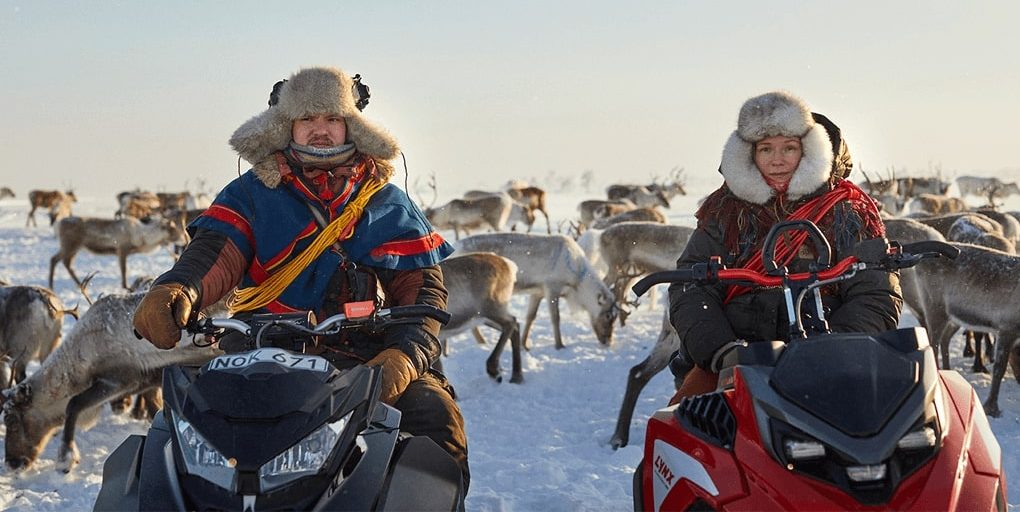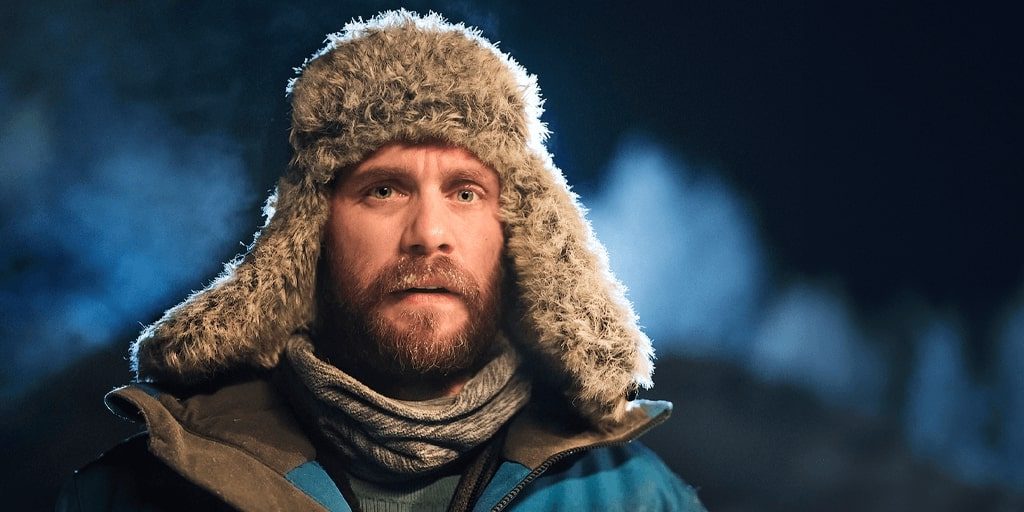Netflix’s ‘Stolen’ is a Swedish thriller film centered around Elsa, a 9-year-old girl from the Sami community, an indigenous group inhabiting parts of Sweden, Norway, Finland, and Russia. When Elsa witnesses a local hunter kills one of her baby reindeer and is threatened into silence, the traumatic event haunts her for years. A decade later, fueled by the pain and loss of the incident, Elsa sets out on a quest for vengeance, determined to uncover the truth and confront the killer.
Director Elle Márjá Eira has been able to touch upon larger societal themes in ‘Stolen,’ particularly shedding light on the struggles faced by the Sami community. The film explores issues of xenophobia, as well as the community’s ongoing battle to preserve their heritage and culture in the face of threats like climate change. The film also challenges traditional patriarchal norms, highlighting the conflict between outdated practices and modern values. Given its grounding in real-world challenges, viewers may wonder if the story is based on real-life events too.
Stolen Showcases the History and Culture of the Sami Community
‘Stolen’ draws its inspiration from the critically acclaimed novel of the same name by Ann-Helén Laestadius, who also serves as the executive producer of the film. The screenplay is crafted by Peter Birro. Laestadius, hailing from the Arctic city of Kiruna in northernmost Sweden, has roots in both the Sami and Tornedalian communities, both considered minorities in Sweden. Her background and firsthand experiences within these communities enable her to authentically portray the struggles and resilience of the Sami people depicted in the film.

The Sami community, indigenous to the northern regions of Sweden, Norway, Finland, and Russia, faces a myriad of challenges rooted in centuries of marginalization and discrimination. Historically, the Sami have endured efforts to assimilate their culture and traditional way of life, leading to a loss of language, land, and autonomy. Today, they grapple with ongoing issues of land rights, environmental degradation, and the impacts of climate change on their reindeer herding practices.
Furthermore, the Sami often confront prejudice and xenophobia, as their unique identity and cultural practices are met with skepticism and misunderstanding. Laestadius recalled her own experiences during school when she inherently knew that she should not tell anyone about her identity. She said that she was aware of the kind of treatment that was meted out to the Sami kids. They were called names and bullied and the only way she was able to escape it was to not tell anyone that she was a Sami kid herself.
In an interview, Laestadius revealed her extensive research process of going through hundreds of police reports detailing incidents of reindeer killing and torture. She emphasized the immense significance of reindeer herding within the Sami community, serving as both a traditional livelihood and a cultural cornerstone. Despite their longstanding connection to the land, the Sami only gained rights to manage hunting and fishing in their region in 2020, following a landmark decision by the Supreme Court. Laestadius underscored the close bond between the Sami people and their reindeer, describing how they are regarded as cherished family members.
In the film, numerous male characters struggle with mental health challenges, with some tragically succumbing to suicide. Laestadius revealed a personal connection to this theme, having lost two cousins to suicide. She attributed the underlying reasons for these tragedies to the immense social and financial pressures faced by reindeer herders in the modern world. The inability to access adequate mental health resources further compounds these difficulties, exacerbating the mental health struggles experienced by individuals within the community.
The director of the film, Elle Márjá Eira, also explained her connection to the film in an interview. She said, “It is about time that the world gets to know this story, and what is going on in Sápmi today. I am a reindeer owner myself, and I recognize myself in this story. I also know that my fellow indigenous sisters, brothers, and ancestors are with me.”
It is through the influx of such deeply personal stories, connections, and passions that merged to bring this story to the screen. ‘Stolen’ is one of the few films that bring the perils and experiences of the Sami community to the forefront and is an important story to tell in the present day. It contributes to diverse storytelling and commits to never forgetting the lineage of the Sami community.
Read More: Netflix’s Stolen: Filming Locations of the Swedish Movie


You must be logged in to post a comment.